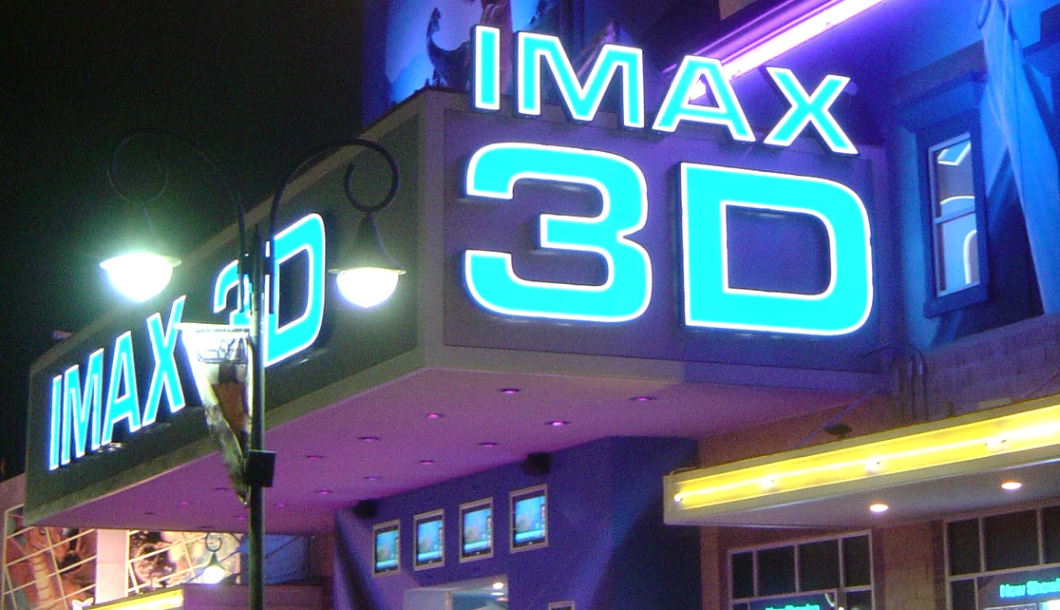IMAX Demands Website Retract Story That Has Virtually Nothing To Do With IMAX
The folks at IMAX need to learn when to take a compliment. When someone name-drops your brand as an aspirational standard, you should smile and appreciate the respect. What you shouldn’t do is demand that a news website retract an entire story just because someone mentions your brand.
But according to Ars Technica, that’s exactly what happened to them a few days after writing this story about Valve’s virtual reality platform.
In that article, a video game designer used the IMAX brand as a reference when talking about virtual reality.
Said the designer in that original story, “The jump between a regular game and playing a room scale VR experience is X times 100. It’s like saying, ‘I have an IMAX theater in my house.'”
It’s the kind of comparison you hear people toss off every day in news stories — “They’re the McDonald’s of auto dealerships;” “It’s like having an Uber for babysitters;” “It’s the Consumerist.com of erotic massage parlors” — without anyone batting an eye.
But IMAX batted. And this wasn’t just some automated trademark-monitoring bot that spits out cease-and-desist letters at the mere mention of the word IMAX. It was a letter from the company’s Chief Administrative Officer, complete with a hare-brained explanation for why a retraction is necessary.
“We believe that your incorrect reference to IMAX when describing this product is misleading to readers as we do not believe that it is possible for a virtual reality system to replicate the experience of an IMAX theatre,” reads the letter, which calls for a retraction and for Ars to cease using this quote in future related stories.
But as Ars Technica Joe Mullin points out, IMAX’s trademark infringement argument point is moot. Aside from the fact that the original article doesn’t make this statement as fact — and that it’s not the article’s author but an interviewee who made the supposedly infringing statement — the existence of a trademark doesn’t prevent a journalist from using that trademark in a comparison.
Now, if Valve were going around making the claim — especially in ads or marketing materials — that its Steam VR platform was “like having an IMAX theater in your house,” then IMAX might have a valid trademark dilution concern, as it could be seen to imply a connection between the two companies that isn’t there. But a news story that quotes a game designer who is just using the comparison to illustrate his opinion appears to fall far short of this threshold.
If a trademark owner could make successful infringement claims on every use of a brand that it disagrees with, then most news stories on Consumerist and every other news site would be restricted to either positive puff pieces or edited to read, “Passengers on an airline that we can’t name had to make an emergency landing at an airport somewhere and then complained about the bed bugs at the hotel whose name we can’t write without fear of a trademark complaint.”
Dear IMAX: Just because you don’t like a comparison doesn’t mean someone can’t make it.
UPDATE: After Ars called out IMAX for its apparent lack of understanding about the basic underpinnings of both trademark and a free press, the big-screen company issued what it called an “IMAX-sized mea culpa” for the situation.
“We are very passionate about our brand and sometimes we can be overzealous in trying to protect it,” reads the statement to Ars from IMAX’s Chief Marketing Officer. “Unfortunately in this situation we acted too quickly without truly understanding the reference to our brand.”
Thanks to Michael for the tip!
Want more consumer news? Visit our parent organization, Consumer Reports, for the latest on scams, recalls, and other consumer issues.


